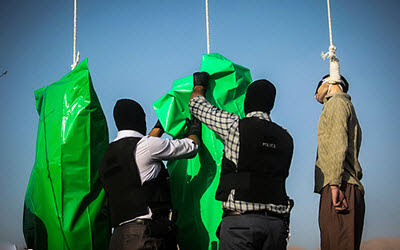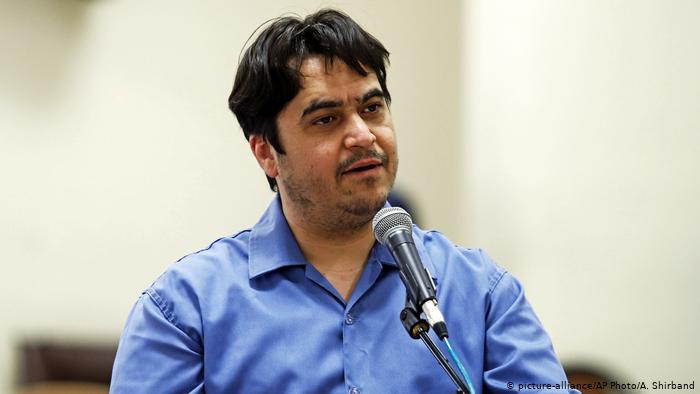Opportune time for US government to engage with the international community
Finally, the crucial outcome of the 2020 US presidential election was determined by the victory of Democratic candidate Joe Biden. This election and its outcome is a historic event with significant global repercussions, accompanied by breathtaking and close competition between the candidates of the two main American parties.
The defeat of Donald Trump was a victory for people who are committed to the values and principles of democracy, environmental protection, multilateralism in resolving global issues, lasting stability and peace, and attention to knowledge-based approaches to governance.
Trump's withdrawal from global treaties, his disregard for environmental issues, and his attempt to rebuild coercive relations in the form of "America First," his struggle with global gains to expand free trade and multilateral relations, and participatory approach to conflict resolution has created a new wave of instability in the world, which, due to the unpredictability of Trump's decisions and behavior, has caused more global damage in the last four years than ever before.
Trump's unjustified withdrawal from the UN Security Council and the imposition of heavy unilateral economic sanctions in the form of a policy of "maximum pressure", although severely strained the Islamic Republic, but most of all exacerbated the livelihood of the Iranian people, especially the poor and low-income groups. It caused irreparable damage to Iran's development structures.
We, the three secular Republican organizations, express our satisfaction with this event and the hope that international relations will return to the orbit of rationality and conventional practices, which can play an important role in curbing far-right outcomes and their mutual influence in inciting other extremist tendencies.
In addition, given Biden's stated policy on JCPOA, the change in the United States is an opportunity to return to the negotiating table, discuss the two countries' differences, and most importantly, lift sanctions as it related to it.
Contrary to the unrealistic and imaginative portrayals of some of the political forces advocating the "maximum pressure" campaign, the Trump Administration wanted to put key government officials at the negotiating table and reach an agreement by putting the Islamic Republic in a tight spot and cutting its foreign exchange earnings. Forcing new and more concessions around the security considerations of the United States and its regional allies. Human rights issues and the demands of the Iranian people had no place in the policies of the Donald Trump administration.
Of course, during this period, some opposition political forces tried to advance their desired political agenda hoping for the intervention of the US government and its agency in changes and the formation of a transitional government abroad, without paying attention to the internal militant forces, which did not succeed.
Now, after this experience, it is necessary to emphasize once again that trying to persuade the US government to pursue a policy of "regime change" is wrong and contrary to national dignity and the principle of independence; Also, trying to bring the US government into the domestic political equations of Iran to strengthen the position of one faction and advance its political projects is a wrong move and has negative consequences.
The changes in the White House in the current context is another emphasis on the fact that Iran's domestic political issues and related developments should be based on internal variables and the interactions of internal forces within the framework of components such as "national interests", "political pluralism", "Universal Declaration of Human Rights" and "Requirements for the Independence of the Country. Foreign governments, including the US government, can only pressure the Islamic Republic to meet its global obligations to comply with human rights conventions and treaties. Now, with the elimination of unrealistic ideas, there is a better opportunity to strengthen the struggles within the foundation and organize the forces against the Islamic Republic.
Past experiences and events that took place before and after the adoption of the UN Security Council highlight the fact that there is no will in the Islamic Republic to change its regional and crisis policies. The Islamic Republic, with its strategic and expansionist policy, has wasted most of the country's resources and facilities, and with its policy of hostility in the region and the world, has isolated the country and made our people miserable.
Thus, engaging with the world and de-escalating relations between Iran and the United States requires changing regional policies, abandoning long-standing hostility to the United States, and abandoning Israel's policy of annihilation. Returning to JCPOA, if not accompanied by a change in these policies, will not have a significant capacity to solve problems and will return to the previous conditions.
We believe that reducing the scope of conflicts and lifting economic sanctions that are harmful to the people is in the interest of the country and in the national interest; Therefore, we are emphasizing demands such as the lifting of economic sanctions that are problematic for the livelihood and health of the people, a return to JCPOA, a change in regional policies, and the application of de-escalation with the US government.
We hope that the inauguration of the Biden government will be a turning point in reducing instability in the world and strengthening multilateral and participatory approaches to global governance.
Political-Executive Board:
United Republicans of Iran
Left Party of Iran (People's Fadaian)
Union for Secular Republic and Human Rights in Iran (USRHR)
November 11, 2020






